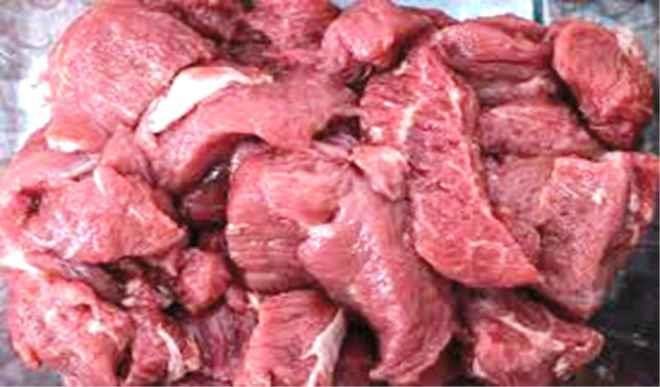Niger raises alarm over existence of poisonous meat
Niger state government said it has uncovered massive use of steroid by livestock farmers and butchers, which make most meat in circulation unsafe for consumption. Briefing journalists on the outcome of the state executive council meeting on Wednesday in Minna, the Commissioner for Livestock and Fisheries, Zakari Bawa and his agriculture counterpart, Malam Nuhu Dukku […]

Niger state government said it has uncovered massive use of steroid by livestock farmers and butchers, which make most meat in circulation unsafe for consumption.
Briefing journalists on the outcome of the state executive council meeting on Wednesday in Minna, the Commissioner for Livestock and Fisheries, Zakari Bawa and his agriculture counterpart, Malam Nuhu Dukku said the use of steroid for fattening purpose by livestock farmers and butchers was a source of concern to government.
“Government discovered that some unscrupulous elements are inducing animals and circulating poisonous meat. This is due to the rise in population. Because of the increase in consumption, these wicked people have started using drugs especially antibiotics and crude methods on the animals.
“Our statistics show that between 800 and 1,000 cattle, sheep and goats are slaughtered, while over 5,000 chickens are consumed daily across the state, which put greater percentage of consumers at risk of this unwholesome practice “, Bawa said.
He said though Veterinary Drugs or Veterinary Medicinal Products (VMPs) are critical to meeting the challenges of providing adequate amounts of food, the use of steroid for unwholesome purpose, has the potential to generate residues which could pose a risk to consumer health.
“The inducing of these animals pose grave and dangerous health hazards to the consumer and increases the cost of human healthcare due to problems of drug resistance by infection-disease causing organisms”, he explained.
Bawa further disclosed that drugs used in food animals can affect the people because of their secretion in edible animal tissues in trace amounts usually called residues either direct and short term hazards or indirect and long term hazards.
He said an inter ministerial committee which comprises the ministry and that of agriculture, health as well as the National Agency for Food and Drugs Administration (NAFDAC) would soon be set up to address the malpractices.
He also said in the interim, veterinary doctors have been deployed across the state to ensure that only healthy animals are slaughtered for consumption, just as he said sensitisation on the inherent danger of the practice has commenced, and warned that anyone found wanting will be fined N500,000.
